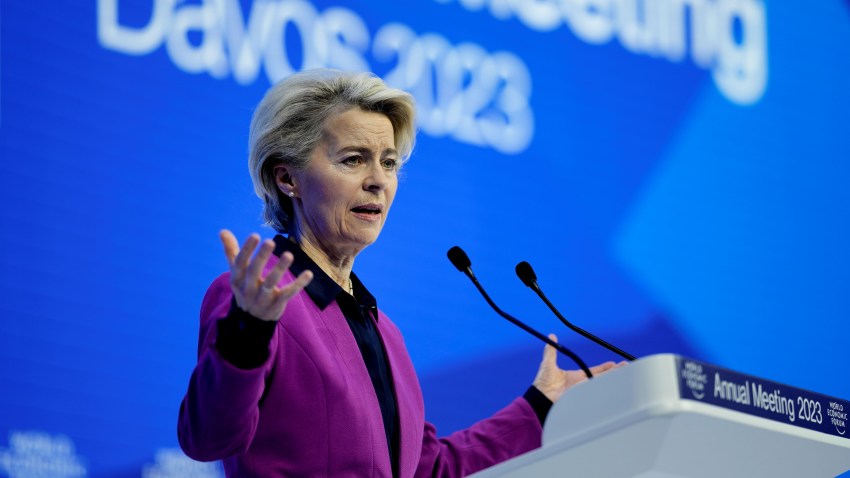The European Commission’s senior officials are crafting a response to the U.S. Inflation Reduction Act, as it becomes more apparent that Washington is unlikely to adopt proposed amendments to the legislation to assuage European concerns. In a speech earlier this week at a gathering of the World Economic Forum in Davos, Commission President Ursula von der Leyen laid out some of the steps the union will take in order to keep European industry competitive in the race to attract green technology and climate-related investment.
“Our aim should be to avoid disruptions in transatlantic trade and investment,” von der Leyen told the audience in Davos, adding that the EU and U.S. must “work towards ensuring that our respective incentive programs are fair and mutually reinforcing.” But behind the scenes, few in Brussels are optimistic about the likelihood that the Biden administration will address Europe’s fears over the IRA’s financial incentives, which are earmarked for U.S. residents and companies. The law has received a cool reception among the EU’s 27 member states and stirred an internal debate over the possibility of “Europe First” countermeasures.
Speaking at Davos, von der Leyen sketched out what some of these countermeasures might look like, starting with an EU “sovereignty fund” to boost European industries, particularly those related to climate and digital technology. The commission will also propose a Net-Zero Industry Act intended to increase clean energy funding and meet EU-wide industrial targets by 2030. Von der Leyen also gave details about the commission’s plan to relax rules governing the process by which EU governments can offer direct state aid to businesses, a proposal that several member states have sought for some time. Meanwhile, the EU will also look into ways to grant tax incentives to European companies with “simple tax-break models.”

